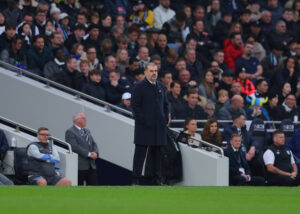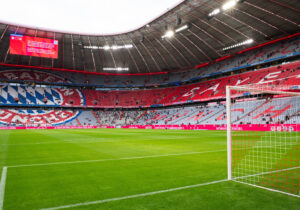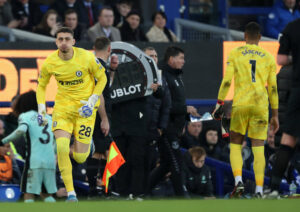Johannesburg, South Africa, 2010. Spain squared off against The Netherlands with both sides looking to seal their first ever World Cup honours. Under the glittering Soccer City lights, Andrés Iniesta, struck in the 116th minute to give Spain the win. For a man who nearly missed out on the World Cup finals, this was a moment of pride, and one in which he celebrated selflessly.
Anxious Times
Iniesta’s moment of glory came after more than a year of agony. Despite winning the UEFA Champions League just a year earlier as part of one of the greatest footballing sides in history, he seemed to be a man broken and distraught. In a match against Villarreal in 2009, about a fortnight before the final against Manchester United in Rome, he suffered an injury in his thigh, one that would bug him for a long time.
He played the final at the Stadio Olimpico, halfway fit, as Barcelona toyed with the English champions to win their third European crown. For Iniesta, it was a moment of joy and relief, but it wouldn’t last long.
Dani Jarque, then captain of Barcelona’s local rivals Espanyol, unexpectedly collapsed in a training camp with his side in Florence, Italy. A man who grew up with Iniesta, and trained with him as a youngster, brought a scene of deep personal crisis for the Barcelona midfielder.
The midfielder didn’t get his ticket to South Africa with ease. The aforementioned injury he suffered against Villarreal haunted him for the following season as he played a little more than 30 minutes of the final third of the campaign. Spain coach Vicente del Bosque put him in the side based on medical predictions of him making a full recovery before the finals, and not on what his actual condition was.
Most wouldn’t make it into the side, but such was the unfathomed quality of the player, that it seemed he would be missed. Despite Spain’s availability of unbelievably talented midfielders, Iniesta was on the plane to South Africa.
Crème de la Crème
“As the ball came to me, I knew it was a now-or-never moment – that if we didn’t win the World Cup now, we never would.” – Andrés Iniesta
The near 85,000 present at Soccer City on the night of the final waited until the 116th minute to see the winner. After a night of brutal tackles, wasted chances and near misses, it was a series of passes from the Spanish side and a fine through ball from Cesc Fàbregas to Andrés Iniesta, who struck the coup de grâce to Dutch hearts.
Spain were world champions.
It was the act after the ball entered the net that is remembered in many hearts. Iniesta took off his shirt to reveal a message to his late friend Dani Jarque. “Dani Jarque: Siempre con Nosotros” (Dani Jarque: Always with us) emblazed on his inner shirt in a moving act that goes down well in the memories of Espanyol fans. He received his obligatory yellow card, but he couldn’t care less. He’d just won his country the World Cup.
After an indifferent start to their campaign, Spain were world champions and were given a rapturous applause on their return home, with Iniesta getting his biggest moment in the limelight. In a country largely separated by the El Clasico divide, it was one powerful strike past a hapless Maarten Stekelenburg that united them all. This was the country’s greatest footballing achievement.
Catalan
“You’re going to retire me. This lad [Iniesta] is going to retire us all.” ex-barcelona captain Pep guardiola to xavi
Iniesta was born and raised nearly 500 kilometres away from Barcelona, in Fuentealbilla. He was 12 when he actually moved to the Catalan city, to join La Masia, the club’s famous youth academy where several of world football’s greatest heroes were honed. It was here that he was taught his humility and improved on his existing football skill. And it was here where he would train to become one of the best of all time.
After his debut in October of 2002, he went on to several great successes and moments in Barcelona’s prominent Blaugrana colours. Games like the one against Chelsea in 2009, where he scored an infamous last minute equaliser to send his side to the Champions League final of that year, or the one against Juventus in the final of the same competition in 2015 where he single-handedly dominated every area of the pitch, despite the presence of the deadly Lionel Messi, Luis Suarez, and Neymar trident.
A player who oozes class and excellence in every step he takes on the pitch, Iniesta is a man who gains respect from fans and foes alike. He gets an exceptional reception from every away crowd in Spain after his heroics in South Africa, but it is the Espanyol fans in particular who give him the most passionate cheer for his homage after he struck the winner in Johannesburg.
His performance against Real Madrid at the Santiago Bernabéu in November of 2015 made him one of only three players to get a cheer from the home crowd. Despite the 4-0 drubbing and the fact that their supporters keenly hate everything about their rivals, Iniesta made them change their ways.
29 major trophies for Barcelona, including 8 La Liga titles and 4 Champions League honours, make him one of the most decorated domestic footballers of all time and a legendary figure for the culés.
España
Goals and assists don’t mean everything for a footballer and Iniesta exemplifies that phrase. In the final of Euro 2012 against Italy in Kiev, Ukraine, Iniesta ran the show with his pinpoint passing and deft touch. He played a major role in the first goal as his exquisite pass to Cesc Fàbregas opened up the Azzuri backline and gave goalscorer David Silva the simple task of tapping the ball into the net. The goal opened the floodgates and Italy conceded three more as Spain won their third successive major international trophy.
The World Cup success was sandwiched in between two European Championships successes. In both of those, Iniesta was part of the team of the tournament, with him being the best player of the tournament in 2012 ahead of teammate Xavi, Italy’s Andrea Pirlo and Portugal‘s Cristiano Ronaldo.
2008 saw him make a considerable impact in the tournament, dominating the group stages and playing a crucial role in the semifinals against Russia. They went on to overcome Germany in the final to win their first major honour since 1964.
His winner in the 2010 World Cup final is his greatest contribution to the national team and one the greatest occasions in World Cup history. He modestly remembers:
“I made a small contribution in a very tough game.”
His goal cemented the Spain side of that era as one of the greatest in history. Just like The Netherlands between 1974 and 1978, or Bayern Munich during the same period and Juventus in the 80s were the most dominant in their respective eras, his strike gave Spain its image and proved to be the pinnacle of a generation.
Legend
Whether it was London in 2009, Johannesburg in 2010 or Berlin in 2015, Andrés Iniesta still keeps his feet on the ground and his eyes on the next challenge. Elegant, sophisticated and lionized by the world, he has created his status and is a symbol to budding footballers around the world.
Main Photo






